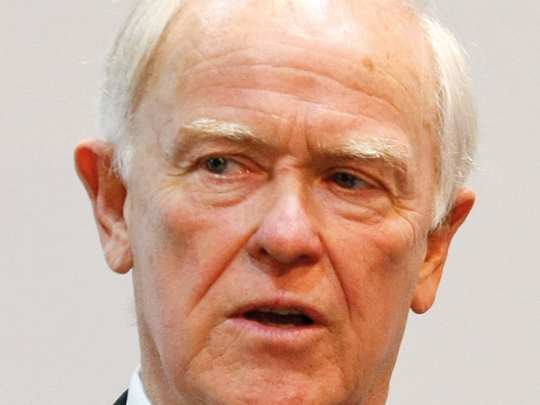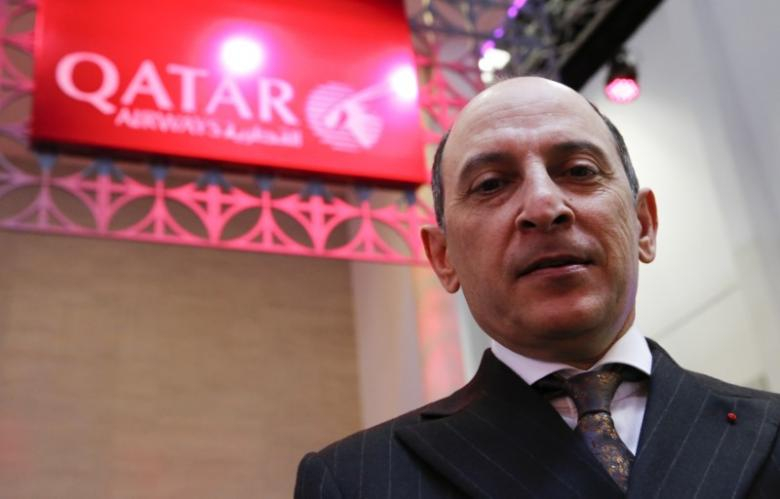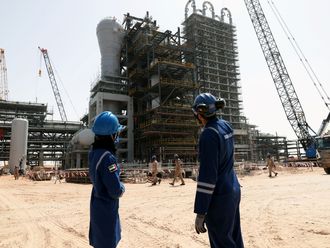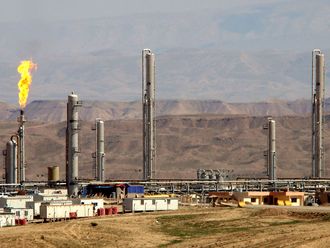
DUBAI, LONDON: Emirates will adjust its offering if customer demand drops following a US ban on in-flight electronics and called for the measure to be imposed more widely.
The world’s biggest long-haul carrier will be watching bookings to its US destinations “very carefully” to monitor any declines, Emirates President Tim Clark said in an interview with Bloomberg TV in Dubai. If there’s a risk that laptops can be used during flights for terrorist activity, then the restriction “should be applied to the airline industry universally,” he said.
The US prohibits travellers on non-stop flights from 10 Middle Eastern airports from bringing large electronics into the aircraft cabin, a rule that was announced last week and came into effect on Saturday.
READ MORE:
Electronics ban irrational, discriminatory
Watch: Emirates responds to laptop ban
Tunisia calls in UK envoy over unjustified laptop ban
Laptop ban hits Dubai for 1.1m weekend travellers
The ban deals an additional blow to Gulf carriers including Etihad Airways and Qatar Airways after President Donald Trump earlier this year restricted citizens from seven Muslim-majority countries from entering the US.
If customer demand diminishes due to “whatever actions the United States government takes, we will have to adjust accordingly, that’s just good business,” Clark said. Emirates may explore more “creative” ways to work around the ban if it remains in place over the long term, including providing government-approved devices on-board its US-bound flights.
After Trump’s initial executive order banning Muslim entrants, Emirates said the rate of bookings growth dropped. The cumulative effect of the US government’s policies won’t “help” demand for Emirates flights during the peak summer travel season, Clark said.
Still, no changes are planned yet and Emirates expects “robust demand” on its new Athens-Newark route this year. The first 48 hours of the ban’s implementation have proceeded without customer complaints, Clark said.
“So far, so good,” he said. “It’s still early days, we have to see what the next few months will bring us.”
Qatar Airways CEO reacts
Qatar Airways' chief executive said on Monday he did not believe the ban on carrying most electronics in the cabins of passenger flights to the United States from eight Muslim majority countries was designed to hurt Gulf airlines.
The US introduced new security measures on March 25 banning electronics larger than a mobile phone from passenger cabins on direct flights to the US from 10 airports in the Middle East, North Africa and Turkey, including Qatar.
The announcement of the restrictions prompted media reports that the move, enacted by President Donald Trump's administration, is to protect US airlines by stifling the growth of the fast-expanding Gulf carriers and Turkish Airlines, a theory dismissed by US officials and many experts.
Gulf airlines Qatar Airways, Emirates and Etihad Airways have been battling a lobbying campaign in Washington by US carriers that accuse them of receiving unfair subsidies, charges that the Gulf carriers deny.
"I don't think it is fair for me to say it is targeting Gulf airlines," Qatar Airways Chief Executive Akbar Al Baker told reporters in London on the sidelines of a Qatar investment forum.
"As far as I am concerned it is a security measure and we have to comply with that." The regulations, prompted by reports that militant groups want to smuggle explosive devices in electronic gadgets, state that electronics larger than a mobile phone — including laptops and tablets — must be stowed with checked baggage on US-bound passenger flights.
Industry experts argue the ban could weaken passenger demand for the Gulf carriers on US routes, especially among business travelers who use the long flying time to complete work on their laptops.
"At the moment it is too early to say if it will affect our business," Al Baker said.
Fellow Gulf carriers Emirates and Etihad said last week they would allow passengers to hand over electronics banned from the cabin to staff at the boarding gates who would then stow the devices.












